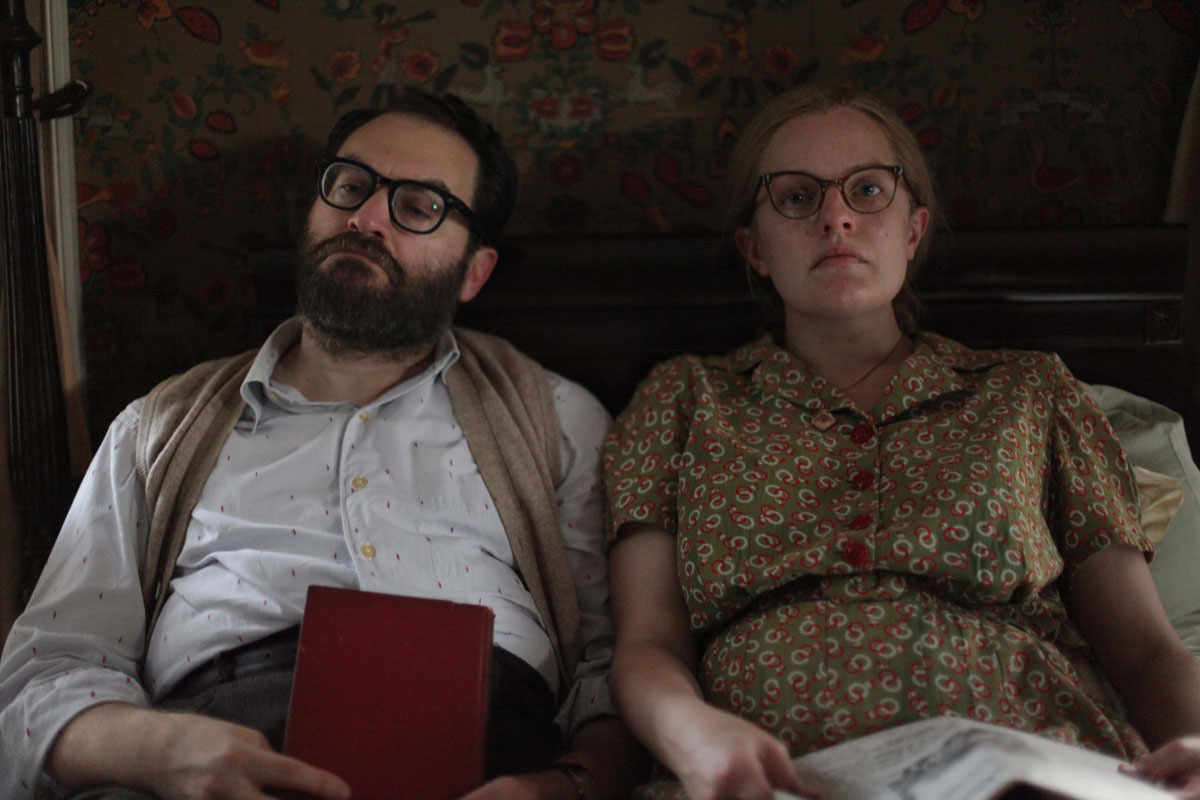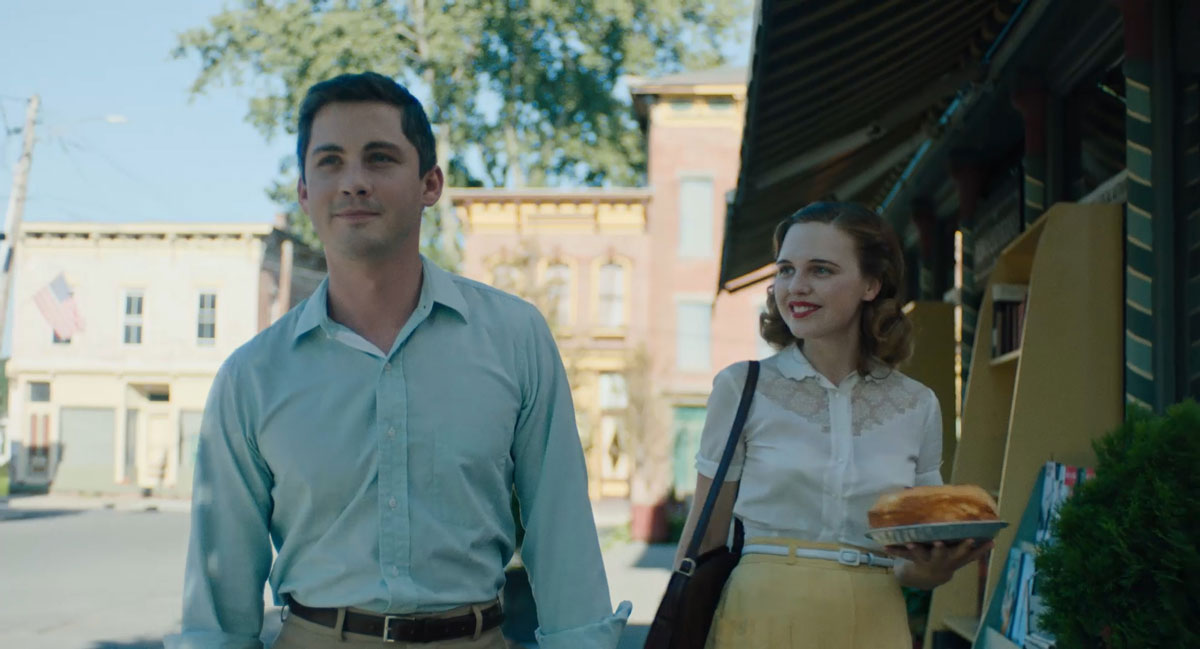Shirley Jackson’s chilling “The Lottery” is one of the most anthologized short stories in the American canon. Josephine Decker’s tantalizing and piercing film, Shirley, begins in the immediate wake of the story’s 1948 publication in The New Yorker, with Jackson in a fugue of depression.
To its great credit and our greater reward, Shirley (now available via VOD) has a whole lot more on its mind than yet another overwrought depiction of the torment of the creative process. In fact, the title is something of a red herring, because the primary protagonist—whose journey is the most wrenching, profound and emblematic of the myriad constraints on women (then and now)—isn’t Jackson but Rose Nemser, the young wife of a teaching assistant.
Indeed, Rose is the first character we meet, on a train to Bennington College with her ambitious husband Fred. He’s the new hire of Stanley Hyman, a seductive literary critic-cum-professor at the Vermont liberal arts school and Shirley’s husband. Rose (Odessa Young) and Fred (Logan Lerman) are eager and hot, perhaps more in lust than in love, a stark contrast to the cerebral, cryptic dynamic they encounter in their older, accomplished hosts.

Shirley skillfully keeps us off balance along with Rose, who is half-pressured, half-charmed into the roles of housekeeper, cook and Shirley’s sitter as the writer does battle with a novel. Shirley (Elisabeth Moss) is maniacally clever (she divines instantly that Rose is pregnant) and unhesitatingly brutal (she surprises Fred with that news over dinner), and we perceive her initially as a force of evil who channels her writing frustration into exultant torment of the neophytes living under her roof.
It would be glib to compare Rose’s pregnancy with Shirley’s struggle to birth a novel. Certainly we are encouraged, at least for a while, to see Rose as an icon of innocence (even a tabula rasa, perhaps) and Shirley as an agent of darkness. Happily, the idea that women sabotage each other isn’t the moral of the story, but the starting point.




